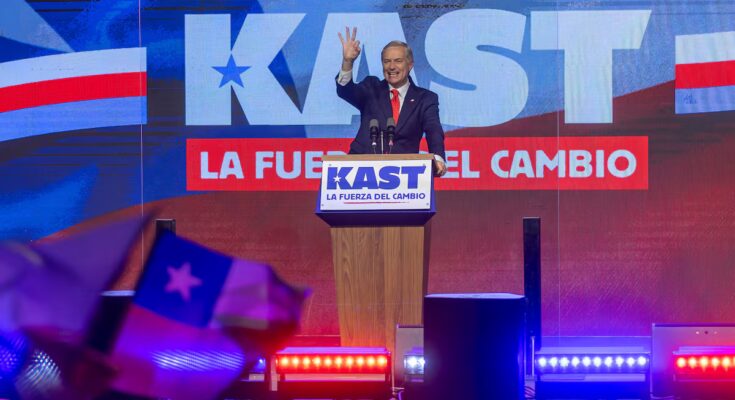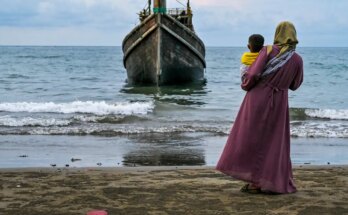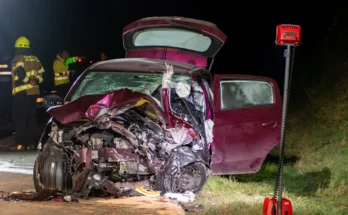For a couple of weeks, a small team from the Republican Party has been developing an exhaustive electoral plan for the second round, on December 14, where José Antonio Kast will face the left-wing candidate Jeannette Jara. The Republican started the second half of the campaign in the southern region of Araucanía, an area very affected by violence and which strongly supports the ultra-conservative project. This morning he was in Los Ríos and had a telephone conversation with Argentine President Javier Milei, with whom he discussed bilateral relations between the two countries. While the candidate tours various cities, his iron team organizes meetings in Santiago with representatives of the traditional right, which worked for the defeat Evelyn Matthei, and the same with those of the libertarian Johannes Kaiser. All this was carefully thought out before his victory in Sunday’s election.
The element of surprise they had to include in their strategy is the People’s Party (PDG) of populist Franco Parisi. With just four weeks to win over their supporters, they are already in talks with some of the party’s 14 elected MPs. This morning Parisi invited Kast and Jara to his YouTube show Bad boys and has announced that, immediately after the space – if it takes place -, it will carry out a digital consultation with the PDG militants so that they can define which candidate they want to support.
On Tuesday, the president of the Republican Party, Arturo Squella, met for an hour with the presidents of the three traditional right-wing parties of Chile Vamos to coordinate the joint work they will carry out on the ground. The president of the UDI, Guillermo Ramírez, argued after the meeting that it is important to get to the Government with 60%-40% of the votes, and not with 52%-48%, because only then will they have “the strength to be able to approve the laws, the reforms that Chile needs”. The first poll published after Sunday’s elections, by the UDD Citizens Panel, shows the figures the right aspires to: 61% say they will vote for Kast in the second round, against 39% for Jara.
In addition to this meeting, Matthei’s former program director, Juan Luis Ossa, did the same with the head of that area of the Kast command, Carmen Soza, and early in the morning, Jorge Quiroz, economic chief of the Republican, had a meeting with economists linked to Chile Vamos, including former Central Bank presidents Vittorio Corbo and Rodrigo Vergara; and the former ministers of Sebastián Piñera, José Ramón Valente and Felipe Larraín. Quiroz said the meeting, where macroeconomics and proposals were discussed, was the first of many, but that those to come will be “with working groups on specific tasks.”
Kast’s economic chief will meet this Wednesday Víctor Espinoza, the Kaiser’s economic chief, will contact Parisi. “We recognize that this is an important group and we treat them with the respect their choice and position in parliament deserves,” he said.
Although the first-round election campaign has put a strain on relations between the traditional right and the far right – Matthei went so far as to call Kast’s campaign against her “disgusting” and that it had “disappointed” her as a human being – the attitude towards the run-off is collaborative. “Under no circumstances could we govern without Chile Vamos,” Republican Squella said Radio Duna. It has not yet been defined what role Matthei and Kaiser will have in the Republican campaign. “Perhaps someone will be able to take on a more active role, another will be able to do a little more detailed work on what we could save or make available from a technical and programmatic point of view,” Squella said in The third.
While the Republican machine was rolling out in Santiago on Tuesday, Kast was campaigning in several southern cities. The Republican also had a conversation with the far-right Argentine president, Javier Milei. “We agree on the enormous opportunities that Latin America has and on the relationship between Chile and Argentina towards a future with more freedom, security and economic progress,” Kast wrote in his networks, where he also reported a conversation with the Uruguayan president, the conservative Santiago Peña.
The plebiscite between two models
In his celebratory speech on Sunday evening, Kast inaugurated the narrative that will shape the runoff against Jara. “It is the most important election of our generation, it will be a plebiscite between two models of society: one model, which is the one led by the current government, which has led to stagnation, violence and hatred. And ours, which speaks freely and promises hope for Chile.” Engineer Martín Arrau, new campaign manager for this four-week cycle, repeated the idea this Monday in the television program Tolerance 0and that the left’s bet is the “continuity” of the Boric administration. He acknowledged that while the numbers may bode well for Republicans, “you can’t relax because the stakes are actually very, very big” and they will work for all those who voted “for this radical change in terms of greater security, greater jobs and greater economic prosperity.”
To wink at the supporters of the opposition candidates, Arrau underlined Matthei’s proposals to create a million jobs and Keizer’s on some issues of justice and the public prosecutor’s office. He also targeted those two million Parisian voters. “There are some proposals regarding women’s debt and others that could be observable. Some contacts have already been established with the elected MPs on their list,” he said.
Kast wasn’t too explicit when asked what signals she will send to Parisi (“anyone who wants to join this campaign and support the ideas of freedom will be welcome”). The president of the Republican Party, however, recognized that “very deep work must be done to win over” those who voted for the populists.
Among the places that Kast will visit in these four weeks is the Northern area, where Parisi was the winner, as in 2021. Parisi has now won there by a landslide and came first among the eight candidates. Four years ago those regions supported Boric in the second round, a crucial factor in the left’s victory over the Republicans.



